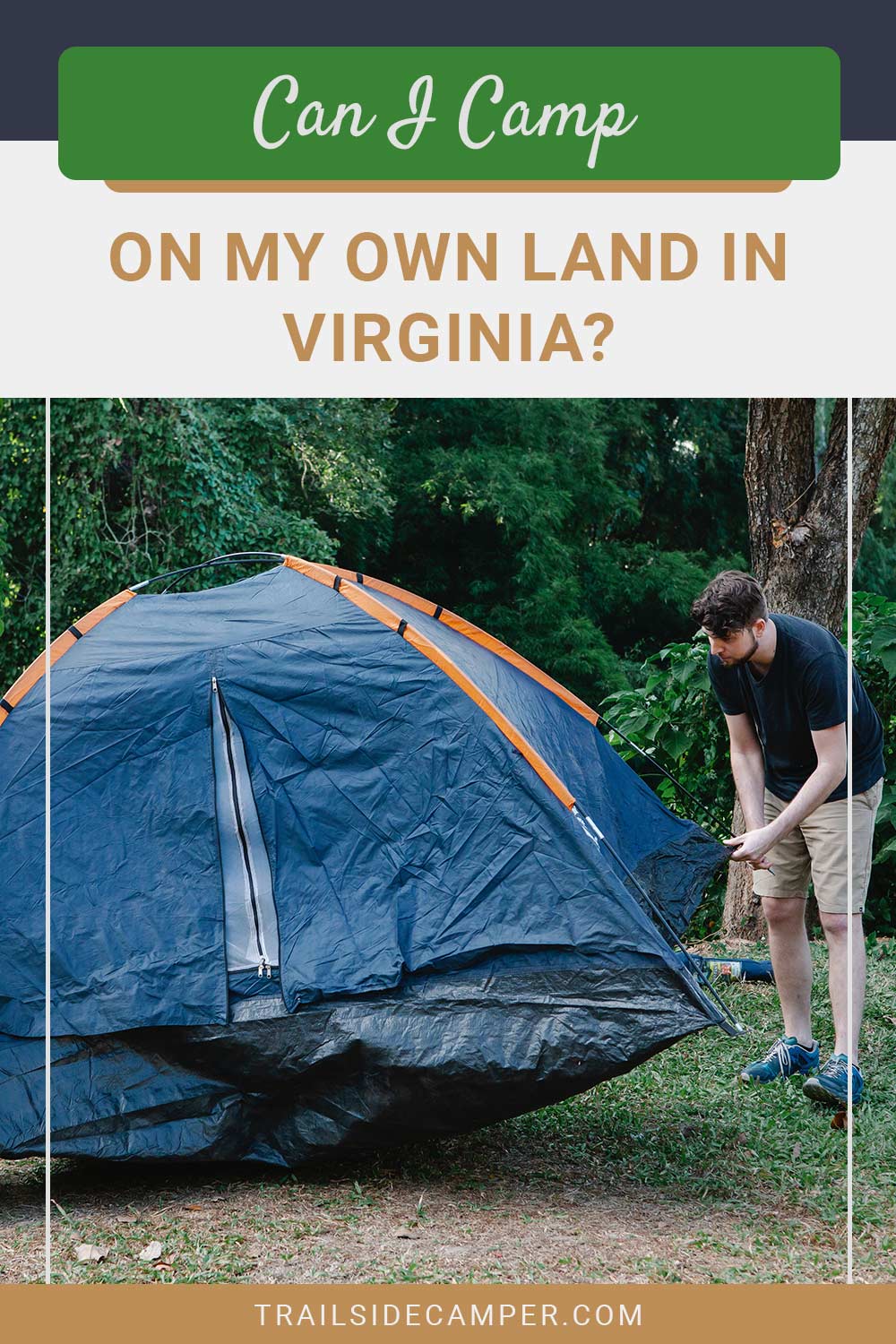Virginia is a popular option for off-grid living. It is perfectly legal to camp on your own property and live off-grid in Virginia. No laws prohibit you from disconnecting the power or water utilities, so you can live off-grid for as long as you want.
This means you can indefinitely camp in an RV on your own land. However, there may be some restrictions to staying long-term in a tent, which can put a timeline on how long you can camp in a tent on your own property.
You might need to acquire a camping permit if you plan to camp in a tent for an extended period of time.
For How Long Can You Do it?
Living off-grid is a popular option in Virginia, and for most, that means living in a home that has been disconnected from electricity and water. Living off-grid is a little different than camping on your own property.
Living in a tent, vehicle, or any other space not deemed suitable for human habitation is not legal in the United States.
It might seem strange to think that you can’t live in a tent on your own property, but in Virginia, there are laws that state that you can camp for no longer than 14 days within a 30-day period. So, in Virginia, you can camp for 14 within 30 days.
Why Can’t You Legally Live in a Tent?
There are laws that prohibit you from living in a tent, a vehicle, or any other space that would not be considered a space to provide you with suitable living conditions.
For example, it is illegal to live in a tent in the United States of America. In Virginia, you can get a camping permit that can be renewed monthly or yearly, but you cannot live in a tent full-time.
What is the Legal Definition of a Campsite?
To you, a campsite might be a spot to lay out under the stars on your own property. It might be a place to seclude yourself and forget the busyness of your everyday life.
The Legal definition of a campsite states that a campsite is:
“Any place where any bedding, sleeping bag, or other sleeping matter, or any stove or fire is placed, established, or maintained, whether or not such place incorporates the use of any tent, lean-to, shack, or any other structure.”
Anderson v. City of Portland, 2009 U.S. Dist. LEXIS 67519 (D. Or. July 30, 2009)
Is Living in an RV allowed
Living in an RV is perfectly legal in Virginia. To satisfy the lay, you must ensure you follow local zoning laws and ordinances that affect where you can park your RV. You might also want access to sewer, water, and electricity if you plan to stay in an RV long-term.
You can have those amenities hooked up for your RV and become a full-time RVer in the state of Virginia. Ensure that you are up to date on your local ordinances, and you will be good to go.
What Are Your Legal Obligations in That Case?
The legal obligations to staying in an RV long-term or living in an RV rely on your local ordinances and regulations. It is legal in Virginia to stay in an RV long-term.
You might want to consider setting up water, sewer, and electricity to keep your RV comfortable, but you can live in an RV on your own property according to the law.
You need to ensure that you satisfy the local ordinances in your area, which will vary depending on where you live.
Final Thoughts on Camping in My Own Land in Virginia
It is legal to live off-grid in the state of Virginia. Virginia is a popular option for individuals hoping to unplug and live off-grid. However, in order to live off-grid, you must have a building structure.
In addition, if you wish to camp long-term on your property, you must have a renewable camping permit. It is not legal to live in a tent in the United States, but there are ways to make sure you can camp long-term on your property.

